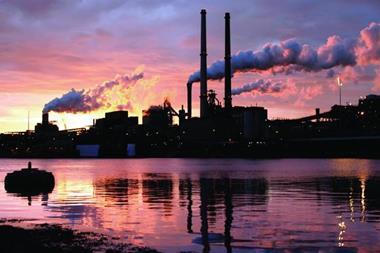WWF and Allianz call for moe action to tackle climate change
While the UK may be beating other G8 nations in their efforts to achieve their Kyoto targets, it is still moving too slowly to combat climate change, according to new research published ahead of the G8 summit in Japan.
The G8 Climate Scorecards 2008, commissioned by the WWF and Allianz, examines the climate performance of the G8 nations.
Keith Allott, head of climate change at WWF UK, said: “It may look like we will reach our Kyoto target, but carbon emissions have been rising in recent years and the current levels of renewable energy used in the UK are still far lower than they should be. Looking at the G8 group as a whole, none of the leading industrialized countries are set to reduce emissions enough to avoid devastating global warming. We only have 10 to 15 years left in which global emissions must peak and decline, so time is clearly running out."
“We only have 10 to 15 years left in which global emissions must peak and decline, so time is clearly running out.
Keith Allott, head of climate change at WWF UK
Dr. Joachim Faber, holding board member of Allianz SE, said: “The G8 countries have a responsibility to be high achievers in the race against climate change. They need to be role models trailblazing the way to steer the world towards a low carbon, clean energy economy."
Andrew Torrance, chief executive of Allianz Insurance and recently appointed chairman of the insurance industry’s ClimateWise initiative said: “We in the insurance industry wish to make our contribution through reducing our own emissions, encouraging climate friendly behaviour by our customers and taking investment decisions in the context of climate change. Reducing carbon emissions is a must but action is also needed at the adaptation level. Governments around the world must urgently take action to protect people from serious weather events like the flooding in Britain just one year ago which will increase in frequency and severity due to climate change.”
Leaders at the upcoming G8 Summit in Japan next week should commit to a binding long-term target for emission reductions of 80% by 2050, and as close to 40% as possible by 2020, stated the report.
A Summary of the report's conclusions country by country
According to the G8 Climate Scorecards 2008, the UK leads the race slightly ahead of France and Germany but all three countries are at best half as far along the road as they should be.
The UK is projected to reach its Kyoto target, and introduces innovative policies like the Climate Change Bill. While it is putting a strong emphasis on its carbon markets approach, it does too little to accelerate its use of renewable energy and foster energy efficiency. Furthermore the share of coal is currently rising in the UK energy mix, which drives emissions up.
France is ranked second based on its present objectives, performance, and international positions but it is weak on reaching its objectives in the near future. France therefore risks losing its relatively high ranking in next year's scorecards.
Germany performs best on renewable energy, having a regulatory framework which is an international benchmark. Germany also approved new legislative packages on energy efficiency and climate policies. But so far it has failed to take a clear stance against coal power. There is an increasing and negative trend from electric utilities to plan the majority of new power plants based on coal and lignite, the report says.
Italy, ranked 4th, has started some efforts to address climate change and benefits from having agreed to relevant EU policies. But very few specifically national measures have been implemented and emissions are well above its Kyoto target. It rates relatively well on energy efficiency.
Japan, ranked 5th, is increasing its emissions and is far off meeting its Kyoto target. The government has yet to announce any mid-term emissions reduction targets. Its second rank in the carbon market stems from its extensive use of offset projects in developing countries under the UN's Clean Development Mechanism but the country lacks national mandatory measures such as emissions trading.
Lagging behind is Russia, which lost its early advantage of lower emissions. During the last eight years emissions increased again. Russia has only planned few national policies, with none yet implemented.
The realisation of a recent announcement by the government to increase energy efficiency dramatically may well influence the ranking in next year's scorecards.
At the bottom of the ranking are Canada and the US with ranks 7 and 8 respectively. This is no surprise given rising emissions and energy-intensive economies, and their failure to realize the full potential of energy efficiency improvements. But there is hope: US legislation to cap emissions is imminent and businesses are preparing for a new commodity market, with potential for continental spill over. While both federal administrations have not been supportive of climate friendly solutions, sub-national initiatives might help raise the bar in time for the next edition of the scorecards.
The scorecards also analyze the climate and energy policies of the five emerging economies Brazil, China, India, Mexico, and South Africa. These countries cannot be measured with the same ruler as industrialized countries, and hence are not part of the ranking. The scorecards reveal great differences between them, in terms of development, energy mix, and resulting emissions. A key question is how industrialized countries will assist these five countries to bring about the move to a low carbon development.


















